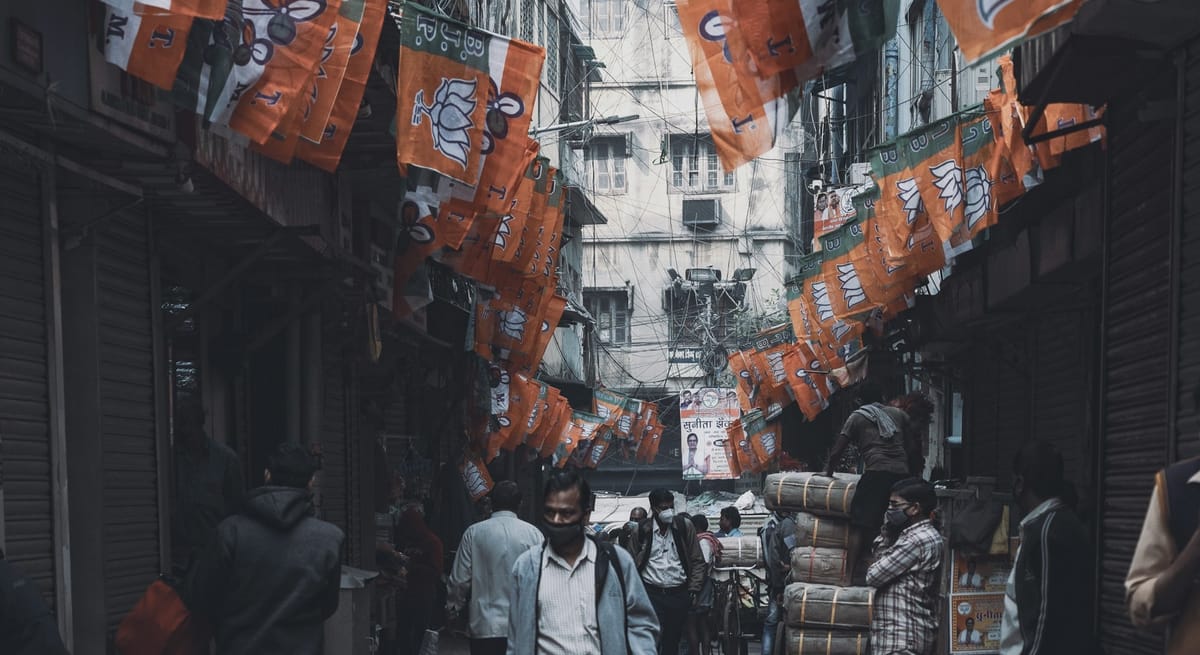The Political Pret Atma

Congress isn't a political party. It's a mindset. A way of thinking about power that jumps from body to body, decade to decade, century to century. The pret atma—the wandering spirit—of Indian politics.
In 1947 the leaders had a choice. Stand on principle or grab what they could get. They chose pragmatism over principle. Division over unity. The easy path over the hard one.
That choice created a template. A way of being in power that would outlast any individual leader, any single party, any particular ideology. This template says that when push comes to shove, survival trumps everything else.
The Traits of the Pret Atma
Power first. Everything else is negotiable. Principles, promises, people—all secondary to staying in control. Watch how quickly "never" becomes "maybe" becomes "we had no choice" when the votes are being counted.
We know better than you. The masses need guidance. Democracy means they get to choose between the options we approve of. The same paternalistic smirk of the gora sahib that said "you're not ready for full independence" is now planted on the face of the brown sahib that says "you don't understand economics" or "you don't grasp national security."
Centralize everything. Real decisions happen at the top. Everyone else implements. Delhi knows best. The center holds. Local governance is theater, state governments are middle management, and citizens are end users who should be grateful for whatever gets delivered.
Manage the story. Control what people think about what you did, not what you actually did. The emergency wasn't about power—it was about stability. The farm laws weren't about implementation—they were about intention.
Buy loyalty. Ideas are fragile. Jobs, contracts, and access are forever. Why argue with someone when you can hire their cousin? Why debate policy when you can appropriate the opposition? Why win hearts and minds when you can simply purchase the people who shape them?
Capture the smart people. If the intellectuals work for you, who's left to criticize you? The same universities that produced freedom fighters now produce policy papers justifying whatever needs justifying. As is my wont, I notice how quickly "independent thinker" becomes "government advisor" becomes "former government advisor who definitely wasn't influenced by that experience."
The Joke Is On Us
We thought changing parties would change everything. We thought our team was different. Anti-establishment. Clean. Principled. But power doesn't care what your ideology was before you got it.
The same gravitational pull that made Congress leaders accept Partition—choosing political survival over national unity—works on everyone. The pret atma doesn't discriminate by saffron or khadi, Hindi or English, Left or Right. It inhabits whoever sits in the chair.
This Isn't About BJP vs Congress. This is about the system itself. The Constitution rewards centralization—everything flows through Delhi. Elections reward patronage—votes follow benefits. Society accepts paternalism—someone else will handle the hard stuff.
The pret atma doesn't discriminate. It inhabits whoever has power. It transforms the humble into the imperious, the outsider into the insider, the reformer into the reformed.
The question today is not whether BJP will betray their core voter base. The real question is: Can any party resist the pret atma once they taste real power?
Can any leader choose the hard path when the easy path is right there, paved with precedent and lined with advisors explaining why this time is different, why this exception is necessary, why this compromise is actually principled?
Can any institution build systems that are stronger than the people who run them?
Coz power changes people. Always. The people who get power are usually the ones who want it most. The people who want power most are usually willing to do whatever it takes to keep it.
That's the pret atma. That's the cycle.
The Uncomfortable Truth
Every Indian voter has seen this movie before. New party. New promises. Same ending. Different uniforms, same script. Different slogans, same outcomes.
The pret atma feeds on our hope that this time will be different. That hope is precious—it's what makes democracy possible. But it's not enough. Hope without systems is just wishful thinking with better marketing.
What matters now is not whether the BJP will disappoint us. They will. Not whether some new party will save us. They won't. Not whether the perfect leader exists somewhere, untouched by the corruption of power.
What matters is whether we're willing to build something bigger than any one party's ambition. What matters is whether we are ready to stop outsourcing our problems to politicians.
We did this a hundred years ago. Handed over our future to leaders who promised they'd handle everything. That outsourcing gave us Partition—the ultimate consequence of letting politicians solve problems they created.
The solution isn't better politicians. It's not outsourcing at all.
It's building institutions and presence that make politicians do the right thing. Institutions that monitor, pressure, and constrain power whether we like the people wielding it or not. A civil society that shows up not just during elections but every day after. Citizens who understand that democracy isn't something you vote for once every five years—it's something you practice continuously.
The problem isn't that bad people get power—it's that power makes people bad, and we need to design for that reality instead of hoping it away.
The pret atma is counting on us to keep hoping instead of building. It's time to disappoint the pret atma.





